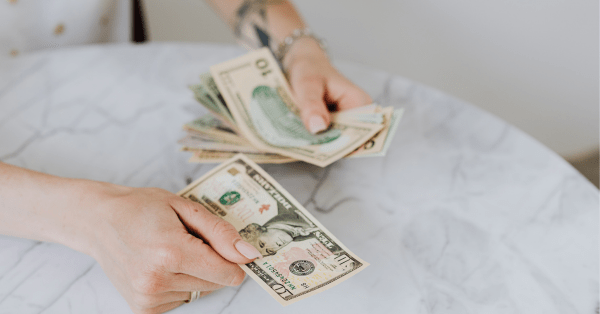Buyer’s Remorse – What Is It & How To Tackle It
Almost every one of us has experienced buyer’s remorse at some point in our life, knowingly, or unknowingly. This phenomenon can be defined as the feeling of regret or guilt after making a purchase. The anxious feelings can be a result of big purchases as well as small purchases that we make in our routine lives. Haven’t we all been there? What if I tell you that there is a way to avoid this feeling, and deal with it altogether? Buyer’s remorse is unpreventable, however, the way it’s dealt with is what makes a difference. In this blog, we will discuss the causes of buyer’s remorse. Moreover, we will also discover ways to tackle it.
What Is Buyer’s Remorse?

Buyer’s remorse is a psychological phenomenon in which a person feels an awful feeling of regret right after buying something. The feeling is not predictable, and it can occur even when you least expect it. The uncomfortable feelings can sometimes kick in just after you enter a store. It is normal to experience buyer’s remorse so make sure to not be too hard on yourself. Rather, try to explore its causes and understand your behavior to make better financial decisions in the future.
Causes Of Buyer’s Remorse

The feeling of regret after purchasing something can be caused due to multiple reasons. Here are some of them.
1. Impulse Buying
Impulse buying is one of the main causes of buyer’s regret. Whenever you make a purchase without thinking it through, there is a high chance that you’ll feel guilty later on.
2. Financial Pressure
Financial pressure can also lead to stress after making a purchase. If you spend money without considering your budget, you’ll feel bad about it later.
3. Social Pressure
Social pressure plays a huge part in the buying decisions we make. If you purchase something with the desire to ‘fit in’, it might lead to remorse.
4. Poor Research
Buyer’s disappointment can also be caused due to poor research regarding a product or service. If the expectations of a buyer are not met, it can lead to stress and feelings of regret.
5. High Expectations
A product can be easily disappointing if you have set your expectations too high. This is also a cause of buyer’s remorse.
How To Deal With Buyer’s Remorse?

There are multiple ways to tackle buyer’s remorse. It is recommended to explore all these ways and find the one that works perfectly for you.
1. Set A Budget For Yourself
Setting a budget can do a big favor for your finances. Design a budget for yourself and see where your money is going so that you can spend it wisely. If you spend your money mindfully, the chances of guilt and regret will be diminished. Making a budget will save you from impulse spending, leading to smart and thoughtful purchasing decisions.
2. Make A List
NEVER visit an outlet or an online store without making a list of things you need. This applies to all small and big item purchases. A well-prepared list will prevent you from going off track while shopping. However, after you have made a shopping list, make sure that you stick to it.
3. Do Long-Term Planning
We all get excited when we come across our favorite products in stores or online. This excitement can lead to making buying decisions on a whim, therefore, leading to remorse later on. However, if we are able to overcome this excitement and consider the long-term benefits of this purchase, we can make smarter shopping decisions.
4. Follow The 24-Hour Rule
Personal finance experts suggest giving yourself 24 hours before an unplanned purchase. Basically, the buyer is supposed to spend 24 hours thinking whether the purchase is worth making or not. If after 24 hours, you are still interested in buying something, there will be fewer chances of regretting your decision.
5. Explore Alternatives
To find the best product that suits your needs, it is advisable to explore your options. In this way, you can find a product that perfectly suits your needs and budget. Hence no guilt after shopping.
Conclusion
Due to the tempting products and services customers are offered today, experiencing buyer’s remorse is quite natural. By learning about this phenomenon in detail, you can avoid the feeling of discomfort after shopping. Moreover, understanding the retailer’s return policy can also help you tackle the feeling of regret. Happy shopping!


Pingback: What Is Thrifting - Buying Nerd